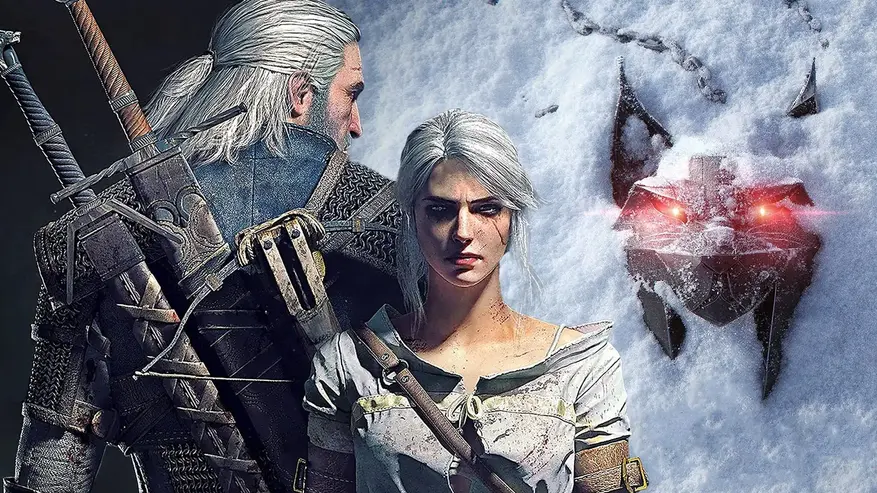How does one follow a phenomenon? CD Projekt Red faces this exact conundrum with the highly anticipated Witcher 4, aiming not to eclipse its predecessor, but to thoughtfully evolve its celebrated legacy.
The gaming world collectively holds its breath whenever “The Witcher 4” is mentioned. The reason is simple, yet monumental: its predecessor, The Witcher 3: Wild Hunt, wasn`t just a game; it was a cultural touchstone. With over 60 million copies sold and an avalanche of critical acclaim, it set a bar so stratospherically high that merely thinking about a sequel seems an unenviable task.
Yet, the developers at CD Projekt Red are not deterred. In fact, their approach is refreshingly pragmatic and, dare we say, philosophical. Narrative Director Philipp Weber recently shed light on the studio`s strategy, articulating a vision that isn`t about outright “beating” The Witcher 3, but rather about doing justice to it.
The Philosophy of “Doing Justice”
It`s an intriguing paradox: to create a successor to a masterpiece without attempting to surpass it. Weber`s sentiments reveal a deeper understanding of creative evolution. “I`m like, `Yeah, how are we going to do that?`” he humorously admitted, acknowledging the sheer scale of the challenge. The answer, it seems, lies not in a desperate sprint for numerical superiority or flashy new mechanics, but in a return to core principles.
CD Projekt Red intends to embrace the “vibe” and “philosophy” that underpinned The Witcher 3`s creation. This isn`t merely corporate jargon; it speaks to a development environment characterized by what Weber fondly refers to as “good creative chaos.” It was a time when developers operated with a certain artistic abandon, driven by passion and a clear vision, often stepping beyond their defined roles to simply “get it done.”
“We want to take the philosophy we had during The Witcher 3—how to make a game, how to really care about these things, how to tell stories—and keep that philosophy.”
This suggests a commitment to organic development, where the story, the characters, and the player experience take precedence over rigid hierarchies or iterative design. It implies a studio confident enough to trust its creative instincts, even if it means doing things a little “dirty,” as Weber puts it, to achieve the desired outcome.
New Questions, Evolved Narratives
While honoring the past, The Witcher 4 is firmly positioned as a “true sequel.” This means it`s not a mere retread of familiar ground. Weber emphasized the necessity of asking “new questions” and exploring fresh narrative avenues. The risk, he noted, of “just redoing what we did before” is a creative cul-de-sac. The goal is a “healthy mix of really moving forward and also trying out some new things, but doing justice to what was there, not trying to beat it.”
This commitment to evolution is crucial. Players expect the familiar dark fantasy, moral ambiguities, and compelling character arcs that define the Witcher universe. However, they also crave innovation. The subtle shift in focus to Ciri as the potential central figure, while sparking some polarized discussions (predictably labeled “woke” by some, and staunchly defended by Geralt`s voice actor), exemplifies this desire to push boundaries and explore new perspectives within an established world. It`s a calculated risk, signaling that while the heart of the Witcher remains, its beating pulse will explore new rhythms.
The Road Ahead
Development cycles for games of this scope are famously long. The Witcher 4 is not expected to grace our screens until 2027 at the earliest, a testament to the meticulous process required to craft such an expansive experience. While a captivating tech demo surfaced earlier this year, showcasing impressive visual fidelity, developers were quick to clarify it was not representative of final gameplay—a standard, yet important, industry disclaimer to manage expectations.
In the interim, CD Projekt Red remains a hive of activity, with other significant projects underway, including a highly anticipated follow-up to Cyberpunk 2077, a complete remake of the original Witcher game, and a yet-to-be-detailed collaboration. Each project, in its own way, contributes to the studio`s evolving identity and technical prowess.
For The Witcher 4, the path ahead is less about a frantic race to the finish line and more about a deliberate, artisanal journey. It`s a testament to a studio that understands its own legacy, and rather than being paralyzed by it, chooses to embrace its foundational strengths while bravely venturing into uncharted narrative territories. The question isn`t whether it will surpass The Witcher 3, but how beautifully it will honor its spirit while forging its own indelible mark.

